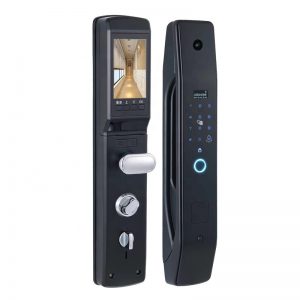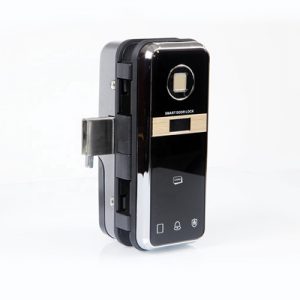Door locks play a significant role in home insurance by influencing your home’s security level and, consequently, the terms of your insurance coverage and premiums. Insurance companies assess the security measures you have in place when determining your policy’s cost and coverage. Here’s how door locks impact home insurance:
- Premium Rates: Insurance companies often offer discounts on premiums for homeowners who have effective security measures, including strong door locks. The presence of high-quality locks can reduce the risk of break-ins and theft, leading to lower insurance premiums.
- sk of your home being burglarized or vandalized. Homes with robust door locks and other security features are considered lower risk, which can lead to better insurance rates.
- Requirements for Coverage: Some insurance policies might have specific requirements for locks and security systems. If your policy mandates certain types of locks or security features, failing to comply could result in limited coverage or denied claims in case of a break-in.
- Approved Lock Types: Insurance companies might specify the types of locks that meet their security standards. Deadbolt locks are often preferred over spring-latch locks due to their higher level of resistance against forced entry.
- Claim Eligibility: In the unfortunate event of a break-in, having evidence of secure locks can help streamline your insurance claim process. It demonstrates that you took reasonable precautions to protect your property.
- Upgrading Locks: If you decide to upgrade your door locks to more secure options, it’s a good idea to inform your insurance company. This could lead to potential premium reductions once the new locks are installed and verified.
- Vacant Property: If you leave your home unoccupied for an extended period, insurance coverage might be affected. Insurers often require higher security measures, including specific lock types, to ensure the property’s safety during your absence.
- Non-Standard Locks: Unique or advanced locks, such as biometric or smart locks, might impact your insurance differently. While they can enhance security, insurers might require documentation proving their effectiveness.
- Claims and Investigations: In the unfortunate event of a burglary, your insurance company may investigate the circumstances. Having evidence of forced entry or evidence that you had strong locks can support your claim’s legitimacy.
- Lock Maintenance: Regular maintenance of your locks is important. If a lock malfunctions due to lack of maintenance, your insurance company might be less likely to cover damages or losses resulting from a break-in.
It’s essential to communicate with your insurance provider to understand their specific requirements and recommendations regarding door locks and home security. By investing in quality door locks and adhering to your insurance company’s security guidelines, you can improve your home’s safety, potentially reduce your insurance premiums, and ensure smoother claims processes in case of unfortunate incidents.








